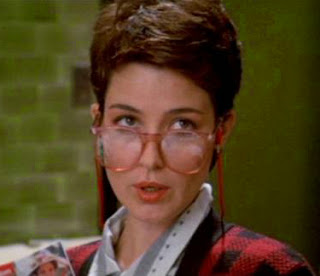Jesus said to him, "You shall love the
Lord your God with all your heart, with all your soul, and with all your mind.
38 This is the first and great commandment. 39 And the second is like it: 'You
shall love your neighbor as yourself. 40 On these two commandments hang all the
Law and the Prophets." - Matt 22:37-40, NKJ
Sometimes
loving your neighbor (who could be a family member, friend, co-worker…anyone
you come into contact with) is difficult. You may feel frustration or anger, annoyance
or even contempt. These feelings shut out love.
Even if
someone is acting contrary to the love of God him or herself, we are
still called to love. And pure love is not based on conditions—for God loves us
in spite of our disobedience, our selfishness,
any sins we have committed (or will commit), and the most glaring weaknesses we
have.
In the story of The Prodigal Son,
some may identify with the older brother—I mean, was it fair to give the younger son all that special treatment after all
the bad stuff he did? Perhaps not. But it was
just. Embracing his returned son as a loving father and allowing him to start
anew was the right thing to do. Love,
expressed and lavished, made all the difference in that boy’s future—you can
count on it.
Let no debt remain outstanding,
except the continuing debt to love one another, for whoever loves others has
fulfilled the law. – Romans 13:8, NIV
And so it is with us. Love is not wasted—it is an extension of a
relationship with Christ, who is the fulfillment of the Law.
“Do
not think that I have come to abolish the Law or the Prophets; I have not come
to abolish them but to fulfill them. –Matthew 5:17, ESV
Sometimes love breaks the rules. When the human
mind dictates that distancing or “temporary rejection” would make more sense,
God, who is Love, gives us a higher
calling. God, in His all-knowing wisdom, challenges us to catch a glimpse with
Him of what it’s like to walk in love. To be doers of His Word in the way we
choose to love others.
Love does no harm to a neighbor.
Therefore love is the fulfillment of the law. –Romans 13:10, NIV
Love is not based on rules, how we feel at the time, or what seems
logical. It’s based on what the heart of God would do—and so it is a much
higher law than any we may have previously ascribed to. Jesus acted in perfect
love throughout His life and even to the point of death. That is the kind of
love we are called to. The love we give is actually a measure of God’s work
being fulfilled in us.
…if we love one another, God abides in us, and
His love is perfected in us. – I John 4:12b, NET
Love isn’t always easy, but it is a
privilege and identifies us with God, who is the author and manifestation of
it.
By
this everyone will know that you are my disciples, if you love one another.”
– John 13:35, NIV













